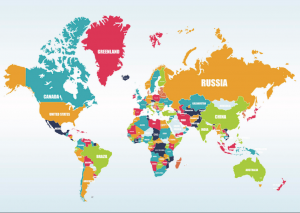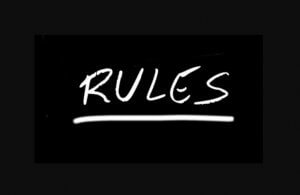The forex (FX) market is the largest and most liquid market in the world, with around $5.3 billion traded daily. Day trading is the most common among Forex traders, but many of the investors depend on the creation of trading accounts and the execution of their transactions through Forex brokers.
There are hundreds of new Forex brokers and brokers constantly opening their doors to the public. This makes it difficult to choose the best broker and leaves traders at the mercy of the broker when we talk about transparency and honesty. The Forex market is huge, but regulation in this market is scarce and there is not a single global body to monitor it 24/7.
There are no specific statistics, but the amount of foreign exchange brokers and binary options working under a regulatory authority is minimal (estimated at 5 percent) and that gives many companies the opportunity to take advantage of their customers and engage in abusive practices without consequences.
The Risk of Non-regulation
For retail forex traders, the biggest disadvantage of most brokers’ lack of regulation of the forex market is illegal activity or outright fraud, as well as losses in a market increasingly dominated by speculative activity and large institutions. After a series of scams related to the forex market during the period 2001-2008, the CFTC to create a specific task force to address the problem, and stringent forex regulations were introduced several years later to protect retail currency traders.
Under the Commodity Trading Act (CEA), the CFTC assumed jurisdiction over leveraged Forex transactions offered to retail clients in the United States. This Act only allows regulated entities to act as counterparties for forex transactions with US retail clients and requires all online US forex brokers to be registered and comply with the strict financial rules applied by the National Futures Association (NFA).
At the institutional level, banks, which are responsible for 95 percent of daily foreign exchange trade, are heavily regulated. The United States Federal Reserve and the United States Department of the Treasury are very attentive to the regulation of the Forex industry and carefully monitor brokers for evidence of manipulation.
Forex Regulation: Why not?
Why is Forex regulation so important? The aim of regulation is to ensure fair and ethical business behaviour. Under the current regulatory contracts, all forex brokers, investment banks, and signal providers are obliged to trade in fair compliance with the regulations and regulations established by the forex regulators or their activities may be considered illegal. These bodies must be registered and authorised in the country where they operate, ensuring that quality control standards are met. Brokerage houses are subject to audits, reviews, and periodic evaluations that force them to maintain industry standards.
In addition, regulated Forex brokers must hold a sufficient amount of funds to be able to execute and complete foreign exchange contracts performed by their clients and also to return clients’ funds in the event of bankruptcy.
If a regulator finds a broker infringing its guidelines, it can use a wide range of powers – criminal, regulatory, and civil – for the protection of consumers and take action against businesses or individuals that do not meet acceptable standards. It may publish notices that are important to ensure the transparency of the decision taken by the authority and to inform the public, thereby maximizing the deterrent effect of enforcement action.
Some regulators issue alerts about financial services companies and individuals, both abroad and in their local areas. Of course, there can be no guarantee that any action taken by a regulatory agency, such as the FCA in the United Kingdom, translates into a payment or return of funds or securities, even when formal disciplinary action is taken and sanctions are imposed.
Many of the measures taken by regulatory agencies against brokers covered by their authorities may also apply to unregulated brokers in similar situations by police and other enforcement agencies, but its mandate is limited and less likely to be imposed, leaving investors with few resources in the event of fraudulent practices.
Forex regulators work within their own jurisdictions but often work together to search for suspicious activities. In fact, in the European Union, a single Member State licence covers the whole continent.
Over the years, regulators around the world have sought to organize some kind of universal body of regulation. The Mifid (Markets in Financial Instruments) Directive was introduced in the United Kingdom in 2007 and has been the cornerstone of Europe’s financial regulation regime ever since.
The Mifid Regulation is being revised to improve the functioning of financial markets following the financial crisis and to strengthen investor protection. The changes entered into force on 3 January 2017, although discussions are under between the European Commission, the Council of the European Union, and the European Parliament. The new legislation is called Mifid II and includes a renewed Mifid and a new Financial Instrument Markets Regulation (Mifir).
There are, however, powerful voices working to pressure the wholesale forex market to have a broad regulatory base. The Association of European Financial Markets (AFME), a body in the sector, has spoken out against the strict rules of MIFID II and has recently published a document highlighting “unforeseen consequences” that could lead to excessive regulation of the Forex sector that would not allow brokers to serve their traders comfortably.
Local Approaches
At present, there is still no uniform approach to the global level when it comes to this market. The regulatory industry continues to operate locally with each broker requesting regulation at a chosen location and some organizations being more active than others. In Japan, one of the most active retail foreign exchange markets in the world, the Financial Services Authority (FSA) oversees all markets, including retail trade. The FSA is proactive in regulating retail foreign exchange trading and has reduced several times the maximum leverage that can be used by retail currency traders in recent years. In the UK, where the FCA (formerly the FSA) is the main regulatory body, and in much of continental Europe there are very few limits to the level of leverage offered.
Cysec, the financial regulator of Cyprus, is part of the European Mifid regulation, but it has attracted a number of foreign companies who wish to take advantage of what is seen as light regulation and an easy way to obtain a licence without having to comply with the strict requirements imposed by other European financial regulators.
In Latin America, there is no regulatory agency, and traders are protected by the regulatory authority that regulates the broker, depending on the country from which the broker originates, for this reason, it is very important that if you are going to carry out trading in Latin America, do so only with a broker who is regulated by a globally recognised authority.
Currently, the lack of regulation of the institutional foreign exchange market continues to pose continuing risks for the retail investor, including increased currency volatility and discrepancies in available public information.
Despite the difficulty and cost of brokers to be under an authorized regulatory body, there are many worthwhile brokers who choose to do so and these have to be considered ahead of all others. Traders have a large selection of regulated brokers in their jurisdictions or in other countries and will also find the same features -and more- with regulated brokers as with unregulated brokers.






